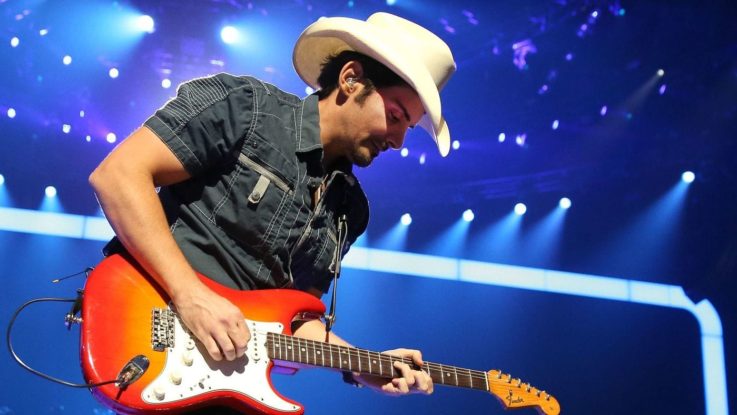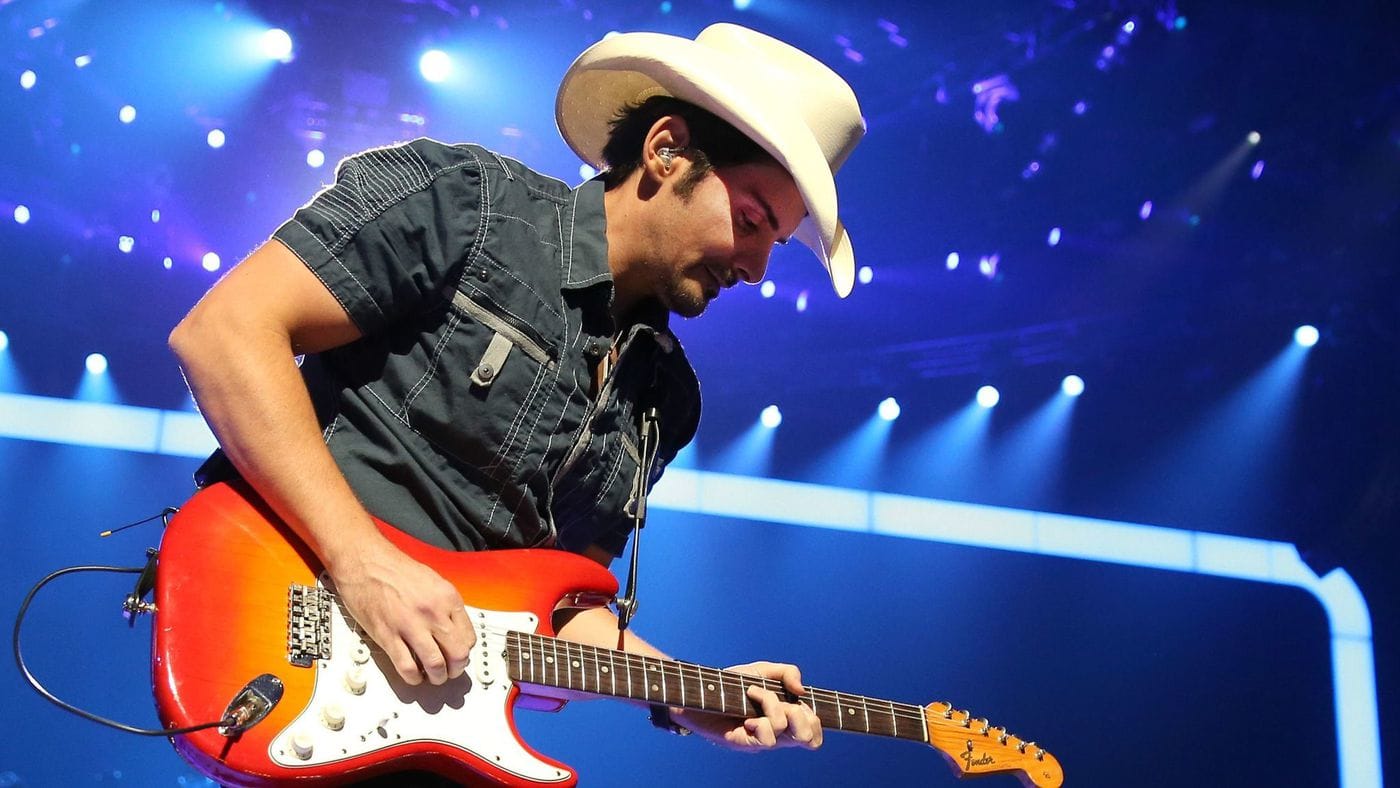

Brad Paisley, who’s set to co-host Wednesday’s CMA Awards, was among the country artists who criticized a memo from the association forbidding journalists from asking about guns and politics. (Christopher Polk / Getty Images for Clear Channel)
There are plenty of questions the Country Music Assn. would like viewers to have on their minds Wednesday night as they tune in to the Nashville trade group’s annual televised awards show on ABC.
For instance: Who will be named entertainer of the year? What type of gown will Carrie Underwood wear as host?
And how likely are Tim McGraw and Faith Hill to kiss during the married couple’s performance? (The answer is very.)
To anyone who’s been paying attention, though, only one question really matters, and that’s how — or whether — the CMA Awards will address some of the most widely discussed events of the past few weeks, including the mass shootings in Las Vegas and Sutherland Springs, Texas, as well as President Trump’s controversial responses to them.
Like it or not, awards shows, with their live audiences and their ample prime-time real estate, have become important venues for artists to grapple with the issues of the day. And in the case of Las Vegas — where 58 country fans were killed at an outdoor festival just off the Strip — you’d think the CMA would be eager for the opportunity to demonstrate some support.
Yet last week the organization issued media guidelines forbidding journalists covering the event from asking entertainers about “the Las Vegas tragedy, gun rights, political affiliations or topics of the like.” The CMA Awards, the memo went on, should be about honoring “the outstanding achievements in country music of the previous year”; everyone in attendance should “feel comfortable talking to press at this exciting time.”
And if a reporter were to disagree and ask McGraw what he thought about Trump’s comment that the massacre in Texas wasn’t “a guns situation”? His or her “credential [would] be reviewed and potentially revoked via security escort.”
If that sounds absurd — or downright chilling — to you, you’re not alone: Almost as soon as the guidelines were published, country stars such as Brad Paisley, who’s set to co-host the show, and Maren Morris voiced their objections, with Morris tweeting, “Country music has always been about the truth. Out of respect for the Las Vegas victims, let’s keep it that way.”
The CMA quickly rescinded the restrictions.
But that’s hardly the end of the story. As trade groups do, the CMA was merely representing the interests of its constituents; that threatening memo reflected a larger unwillingness among many in the country-music industry to engage polarizing issues like gun control, even when the issue touches as close to home as it did in Las Vegas.
A few voices did speak out after last month’s atrocity. Caleb Keeter, a guitarist in the Josh Abbott Band (which performed at the Las Vegas festival), wrote on Twitter that the shooting had made him reconsider his staunch defense of the 2nd Amendment.
“Enough is enough,” he said.
And Margo Price told The Times that artists need “to get their heads out of the sand” and “talk about reforming gun laws.”
The majority of country’s A-listers resorted to generalities and euphemisms, though, just as they have recently regarding other hot-button topics such as Trump’s election and the push for marriage equality.
In part that’s a commercial calculation, of course. Country stars play to a more conservative audience than rappers or pop singers do; some have even received valuable marketing assistance from the National Rifle Assn.’s NRA Country initiative.
But it also speaks to the general smoothing-out of a style that once wore its jagged edges with pride. In the late 1960s, Merle Haggard happily inserted himself into the debate over Vietnam with his song “Okie from Muskogee.” Loretta Lynn took up the idea of birth control a few years later with “The Pill.”
Each song floated complicated politics and neither was easily reducible to a slogan. Yet as country crept closer to pop over the next few decades, and repositioned itself from rural America to the suburbs, the music slowly shed its willingness to offend or be misunderstood.
Now, artists who take strong stands are consigning themselves to country’s margins — think Price on the left or Hank Williams Jr. on the right — while the mainstream congratulates itself for boosting would-be mavericks like Chris Stapleton, a classically gifted songwriter whose rebelliousness ends with his unruly beard. (Stapleton is nominated at the CMA Awards for entertainer, album and male vocalist of the year.)
Which, as it happens, is actually a serious misreading of the pop scene that country has been inching toward.
Tune into the Grammy Awards or the MTV Video Music Awards and you’ll find pop stars practically tripping over themselves to make statements about any number of current events, the more controversial and half-baked the better.
Yet the CMA just wants people at its show to feel comfortable?
These aren’t comfortable times.
Twitter: @mikaelwood
This Article Was Originally Posted at www.einnews.com
http://www.einnews.com/article/414408274/DZz0auEhWg51jZaF?ref=rss&ecode=N1bP1tH84JZ33sYs